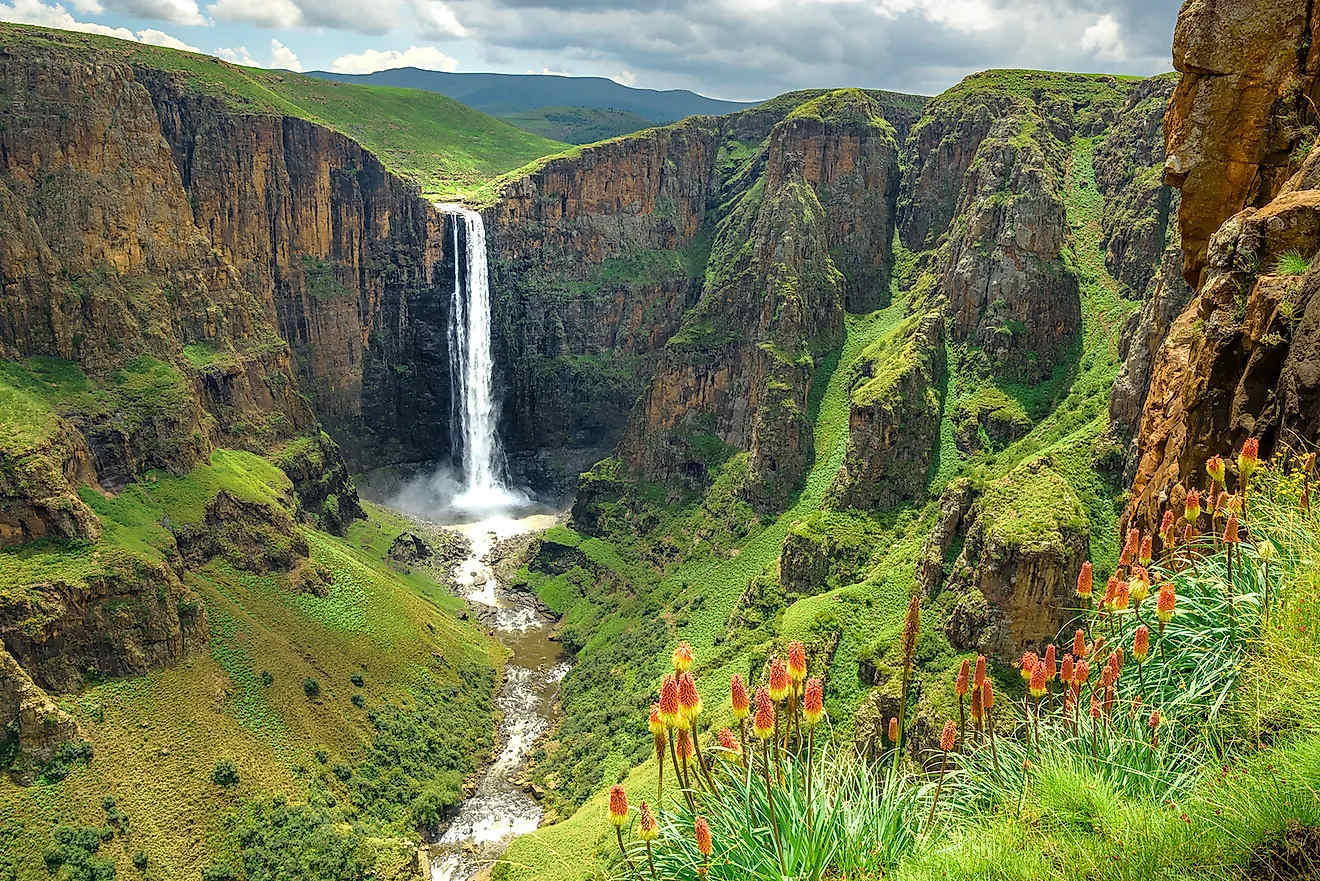
Lesotho, a small landlocked country in Southern Africa, often flies under the radar. Yet, this mountainous kingdom has a rich tapestry of culture, history, and natural beauty. Did you know Lesotho is the only country in the world entirely above 1,000 meters in elevation? This unique geography gives it the nickname "Kingdom in the Sky." Beyond its stunning landscapes, Lesotho boasts a vibrant culture deeply rooted in traditions. From the iconic Basotho blanket to the traditional Sotho language, there's much to learn about this fascinating nation. Whether you're a geography buff, a culture enthusiast, or just curious, these 15 facts about Lesotho will surely pique your interest.
Key Takeaways:
- Lesotho, a small landlocked country in Southern Africa, is known for its high altitude and mountainous terrain, earning it the nickname "Kingdom in the Sky."
- The Basotho people, rich cultural heritage, historical resilience, and breathtaking natural wonders make Lesotho a unique and fascinating destination to explore.
Lesotho's Unique Geography
Lesotho, a small country in Southern Africa, boasts some fascinating geographical features. Here are some intriguing facts about its landscape and location.
-
Landlocked Kingdom: Lesotho is entirely surrounded by South Africa, making it one of the few countries in the world that is landlocked by just one other country.
-
High Altitude: The lowest point in Lesotho is 1,400 meters (4,593 feet) above sea level, making it the country with the highest low point in the world.
-
Mountainous Terrain: Over 80% of Lesotho lies above 1,800 meters (5,906 feet) in elevation, earning it the nickname "Kingdom in the Sky."
-
Thabana Ntlenyana: This is the highest peak in Southern Africa, standing at 3,482 meters (11,423 feet). It’s a popular destination for hikers and adventurers.
Cultural Richness of Lesotho
Lesotho's culture is rich and vibrant, reflecting its history and traditions. Here are some cultural highlights.
-
Basotho People: The majority of Lesotho's population belongs to the Basotho ethnic group, known for their distinctive traditional attire, including the Basotho blanket.
-
Sesotho Language: Sesotho is the official language, alongside English. It’s a Bantu language spoken by millions in Lesotho and South Africa.
-
Traditional Music: Lesotho has a rich musical heritage, with traditional instruments like the lesiba (a type of mouth harp) and the moropa (drum) playing central roles.
-
Mokorotlo Hat: This traditional hat, made from straw, is a national symbol and is featured on Lesotho’s flag.
Historical Insights
Lesotho's history is marked by resilience and significant events that shaped its current state. Here are some historical facts.
-
Moshoeshoe I: The founder of Lesotho, King Moshoeshoe I, united various clans in the early 19th century to form the Basotho nation.
-
Colonial History: Lesotho was a British protectorate known as Basutoland until it gained independence on October 4, 1966.
-
Resistance to Apartheid: During the apartheid era, Lesotho served as a refuge for South African anti-apartheid activists.
Natural Wonders
Lesotho is home to some breathtaking natural wonders that attract tourists and nature enthusiasts alike.
-
Maletsunyane Falls: One of the highest single-drop waterfalls in Africa, Maletsunyane Falls plunges 192 meters (630 feet) into a gorge.
-
Sehlabathebe National Park: This UNESCO World Heritage site is known for its stunning landscapes, unique flora and fauna, and ancient rock art.
-
Katse Dam: Part of the Lesotho Highlands Water Project, Katse Dam is one of the largest dams in Africa and a major source of water for South Africa.
Economic Highlights
Lesotho's economy is diverse, with several key sectors driving its growth. Here are some economic facts.
- Textile Industry: Lesotho's textile industry is a significant part of its economy, exporting garments primarily to the United States and South Africa.
Final Thoughts on Lesotho
Lesotho, often called the "Kingdom in the Sky," is a land of fascinating contrasts and rich culture. From its unique position as a country entirely above 1,000 meters in elevation to its vibrant traditions, Lesotho offers a lot to explore. The country's history, marked by resilience and pride, is reflected in its people and landscapes. Whether it's the stunning Maloti Mountains or the traditional Basotho blankets, there's something captivating about this small yet remarkable nation. Understanding these facts helps appreciate Lesotho's distinct identity and contributions to the world. So next time you think about Africa, remember the high-altitude charm and cultural richness of Lesotho. It's a place where history, nature, and tradition come together in a truly unique way.
Frequently Asked Questions
Was this page helpful?
Our commitment to delivering trustworthy and engaging content is at the heart of what we do. Each fact on our site is contributed by real users like you, bringing a wealth of diverse insights and information. To ensure the highest standards of accuracy and reliability, our dedicated editors meticulously review each submission. This process guarantees that the facts we share are not only fascinating but also credible. Trust in our commitment to quality and authenticity as you explore and learn with us.


